The Potential Of: “Wacky & Whimsical” Vs. “Epic & Dark”
by X-SOLDIER May 14, 2018 0 commentsIn my previous “The Potential Of:” series, I’ve covered methods of player disorientation, the story’s unexplored Dark Science, and how it will need to vary its utilizations of horror. Now it’s time talk about how the Remake will have to be able to balance out those serious aspects with elements that are a little less intense. Final Fantasy VII isn’t just known for the more disturbing things, but how well it’s a truly enjoyable product of its time. It’s fun, goofy, tragic, epic, ridiculous, creepy, enjoyable, and dark all wrapped up in a fantastic package. Oftentimes attempting to have multiple tones in a game can cause them to clash with one another to the detriment of both. That can cause a want to push focus towards one of the two tones. However, when they’re well understood and executed properly those differences in tone can significantly enhance rather than detract from the juxtaposition. The original absolutely nailed that balance, and that’s something that I really hope that the Remake manages to achieve as well.
There are a number of different methods to how and where the Remake could handle this, so we’ll cover them in individual parts by breaking them out into three different general categories, and then get into the specifics within those categories. The three primary ways that we’ll look at this are things that are: player-controlled, story-guided, & world setting. For some, I’ll have proposed solutions, but these solutions are far more opinion than necessity, and could go many different ways in the Remake. The main point of this is to look at the potential difficulties and pitfalls that exist in the game, and how they could be used to the game’s benefit rather than just being held back to its detriment.
Player-Controlled:
When you empower players to do things, sometimes what they do feels odd in the context of the game itself, especially as the Remake pushes into a more realistic version of that world. Additionally, when is it appropriate to have control, and when should the game dictate what you’re allowed to do where the original didn’t?
The Absurd Vs. The Impossible – The Power of Summon Spells
An adorable little Mog with the headband declaring 必殺技 [Deathblow] rides a Chocobo full speed into battle to crash into the opponent, leaving itself comically dizzy, as the Chocobo grabs if off of the ground and departs. The very first Summon spell you ever get in Final Fantasy VII is fun and a little bit cartoonishly comedic, unlike most of of the ones that follow. Also, there’s absolutely nothing to stop you using it against the Planet’s own very serious ultimate submarine defense system: Emerald Weapon.
The idea of Cloud summoning a Mog jockey on its Chocobo steed to go charging along the ocean floor in order to ram into a truly dangerous enemy the size of a building is inherently utterly ridiculous. That being said, the game absolutely shouldn’t prevent you from doing that. The Remake should give you the ability to do fun and ridiculous things like this, because part of the appeal of the original game is that it allows this level of flexibility in how you approach combat.
This thinking should also be applied the other way when it comes to using overly destructive powers in sensitive environments. Sure, using Bahamut ZERO to nuke an enemy from orbit in a massive explosion inside the crashed Gelnika makes no sense – and if you did it would DEFINITELY also kill everyone aboard including yourself.
Final Fantasy XV circumvents this issue smoothly because the combat in Eos is in largely abandoned areas, and all of its summoning opportunities are triggered contextually without the player’s initial prompting. This means that coordinating their attacks to occur can always happen in regions without worrying about the scale of destruction, but that same thing won’t always work in the setting of Final Fantasy VII.
You shouldn’t prevent players from using those abilities whenever they want, like Final Fantasy XV does, because Summon materia in Final Fantasy VII are fundamentally different from Noctis calling on the power of the massive living Gods of the world of Eos. You need to be able to call on their power whenever you want, depending on how you’ve customized your materia configuration.
The Remake should be able to easily get around this issue with the in-universe logic for how Summon spells work, which was outlined in the Crisis Core Complete Guide, “As seen in the original game of FFVII, many of the summon beasts draw their targets into their own unique space in order to attack.” We can see good examples of this with the original game’s Knights of the Round, as well as in Crisis Core’s Ifrit, as well as its Bahamut Summon animations:
This explains why we see the party disappearing as it’s cast, since the camera is staying with the target. The party isn’t disappearing – just the enemy. This would also explain why any of the Summon’s cosmically obliterating damage doesn’t cause real-world issues when the party fades back in, but we’re still given all of the cinematic satisfaction of seeing it all happen as if it did. This sort of thing would allow the player’s Summon spells’ level of damage to continue to feel exceptionally fantastic and over-the-top powerful in the way that we all enjoy. Additionally, it even gives a reason for being stuck in battles against an enemy Summon spell like Zack is against Bahamut Fury in Crisis Core, and would also explain why the Planet’s moon isn’t quite literally completely disintegrated into a plasma beam – every time you summon it.
This explanation would also allow things like Sephiroth’s solar system-obliterating Super Nova to remain in place without causing the immediate destruction of literally everyone and everything – because if he could actually do that, the game would be pointless and it would erase any stakes… but we absolutely all want to see that enormous cinematic recreated in the Remake. Being as the Black Materia is special, it could be capable of summoning Meteor without adhering to those pocket-dimension-only rules. Something like that would allow both types of things to exist without feeling like they make the other one totally irrelevant in the context of actual threats to the world.
This way, it also doesn’t lessen moments when you’re faced up against massive threats that can actually cause this sort of catastrophic damage in the real world. Particularly, it makes the Planet’s own defense system, the Weapons, feel as though they’re still an incredibly significant threat on a fundamentally different level to the way that a Summon spell is.. Diamond Weapon’s destruction that it rains down upon Midgar is likely to be depicted very similarly to the obliteration that Final Fantasy XV: Kingsglaive showed when that series’ Diamond Weapon Daemon unleashed its attack on the Crown City of Insomnia (where it is even confronted by that universe’s version’s real-world of the Knights of the Round).
Final Fantasy XV shows a fantastic reason why the Final Fantasy VII Remake should treat its Summons and the Weapons very differently in how they affect the real world. It should be perfectly fine for the players to be able to control insane levels of power like this to throw against monsters, but putting in a restriction to prevent it from causing this level of real-world collateral damage is incredibly important as well. The Remake needs to balance the stakes of its large threats, while also maintaining the sort of fun and satisfaction that Summon spells provided in the original game.
Choice Vs. Canon – The Full Party, Panty Raiding, Dating Experience
When it comes to the Remake, what’s the experience that it’s looking to create? Are we supposed to see this as the pure canon-only story, or should it have some degree of flexibility in how the story is told? I’d argue that player choice to shape the story is always important, even if it means that every player won’t see the exact same thing that the ‘canon’ storyline would’ve followed.
Did AVALANCHE bust in with guns blazing through the front doors of the Shinra HQ, or did they run up way too many @%#$ stairs in order to sneak in quietly? Did Cloud hot tub it up with a bunch of bros, or did he fall unconscious after hallucinating? Does Don Corneo always choose Ms. Cloud, or did Cloud end up with the flunkies for not giving the cross-dressing his all? Should you be able to wander through Tifa’s things during a flashback and find her, “a little bit senobi panties” or should that be delivered as an on-rails flashback cutscene? Should you just end up taking Aerith/Tifa/Yuffie/Barret on a date depending on how you treat them in various dialogue interactions throughout the course of the game, or should your interactions and date choices be scripted to make you take things seriously because it’s the newly official canon, dammit!?
Giving the player choice is generally better, even when it’s a bit ridiculous. Part of what makes Final Fantasy VII great is that there are small bits of the story where things could’ve gone a number of different ways, and don’t ultimately impact the greater picture of the story one way or another. Sure there are official canon versions of how those events transpired that you can check, if you’re one of the people (like us) who pours over things like Ultimania releases. However, that doesn’t detract from providing little bits of variance and choices that let players make the game their own. If you want to mess around a bit sometimes, the game should provide some flexibility in ways that the original did, because that was a part of its charm.
However, choosing to go with always allowing player choice that matches the original game in every way isn’t a singularly defining thing that is always the right option.
Given that the Remake is going to be fully voice acted, you don’t get to choose the names for your characters any more than you would the characters in Final Fantasy XV. That sort of player choice simply isn’t one that makes sense for this game & story any more. When games do allow you to rename the main character there’s always the issue of the, “we refer to everyone by their names directly except for you” awkwardness to the spoken dialogue – and that’s worth giving up. It’ll be interesting to see things like how the creators will decide that various party members refer to Red XIII after learning his real name is Nanaki. Additionally, it doesn’t make sense to fully voice two characters if you don’t include them in the game.
This is another place where mirroring the scope of player choice doesn’t make sense for the Remake. When assembling your cast of characters, it should always include Yuffie and Vincent. The two of them are far too integral to the overall story – and once again, the logistics of completely excluding two characters from the game is far different than providing optional scenes or small dialogue trees like the other examples. One could argue that what they provide is optional, but the events that they’re tied to in Hojo’s past and the Turks and the Wutai War and Shinra’s overall global impact are far too important. This necessitates that Yuffie and Vincent become an obligatory, inevitable part of the party like every other character.
Final Fantasy VII is excellent at understanding what choices are fun and feel meaningful without allowing those choices to completely change the game. The Remake shouldn’t be an adventure that’s stuck on canon rails, but it shouldn’t be one that rigidly follows the looseness of the original either, because RPGs have evolved and part of the Remake’s core purpose is to take advantage of what’s changed. There is an achievable balance between the two for the modern era, and finding that is part of what makes re-creating the game complicated. However, it is also directly related to what could make it great for both brand new- and returning players in ways that the original was in its time.
Next, let’s dig into things that’re a bit more story-specific.

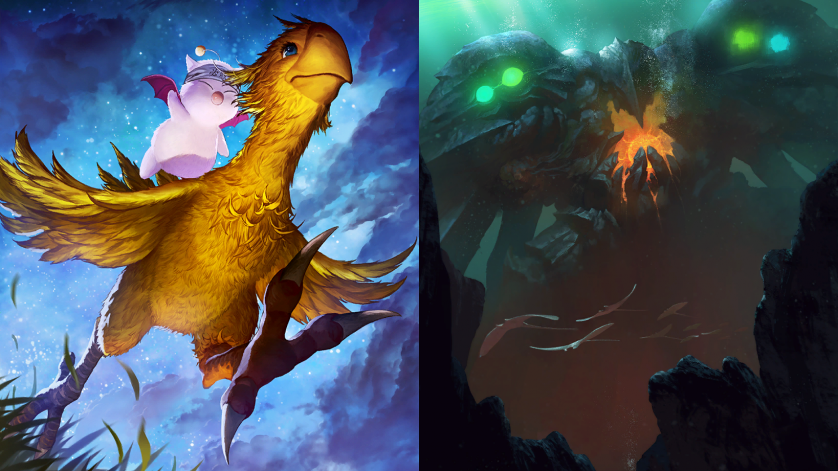
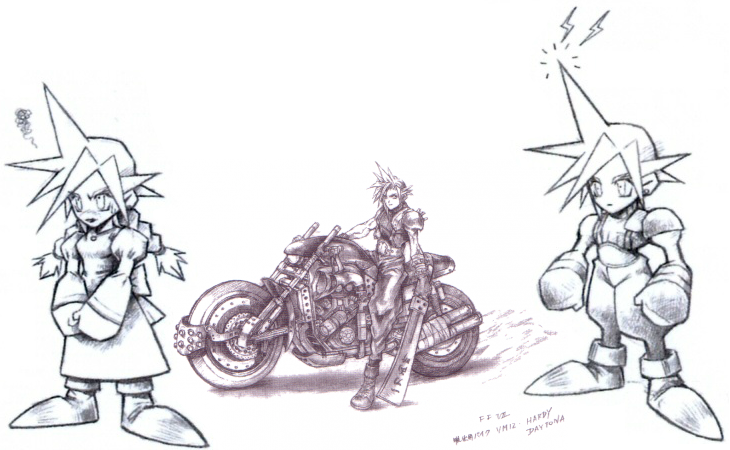
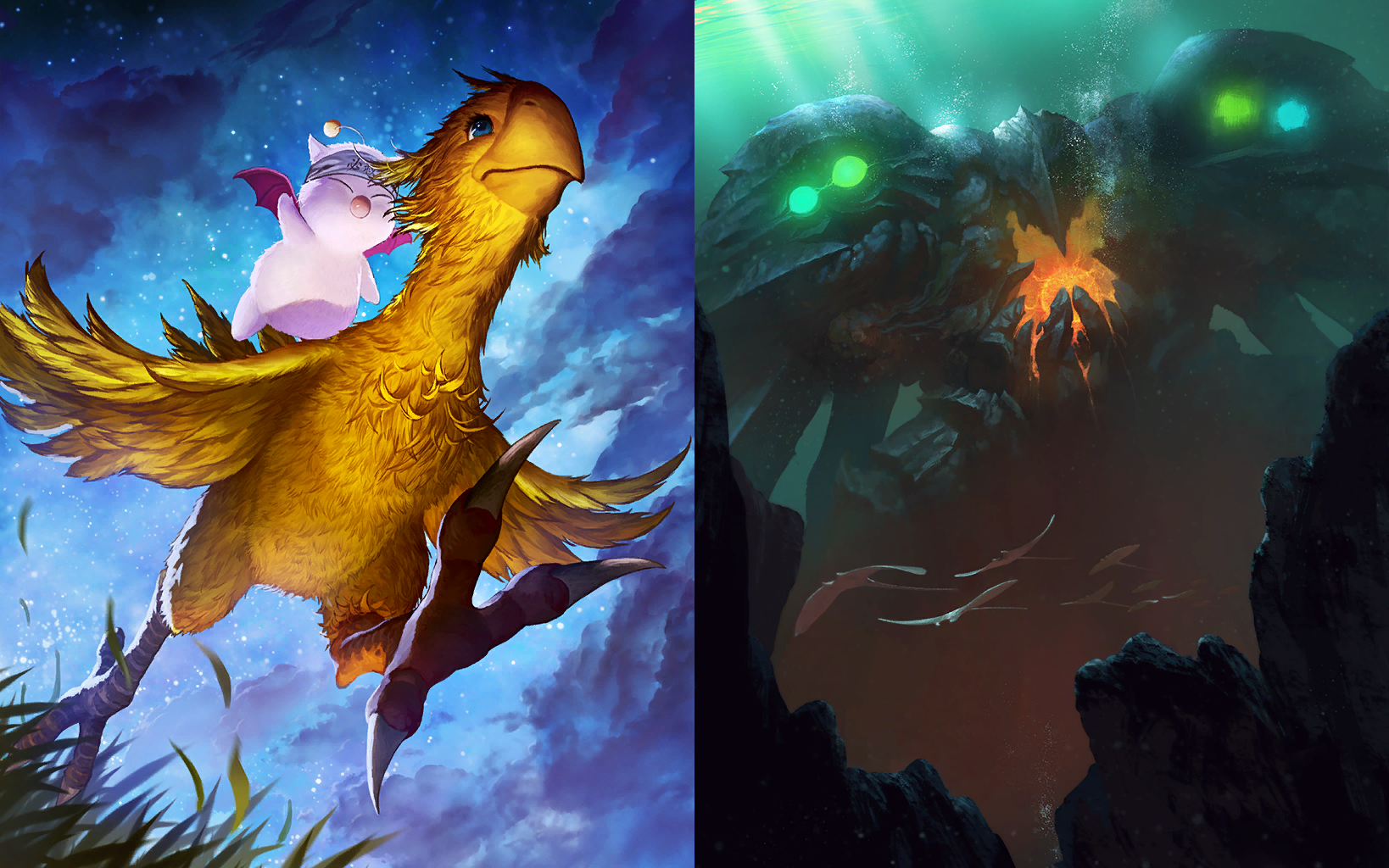
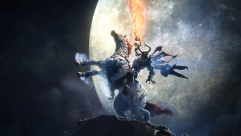

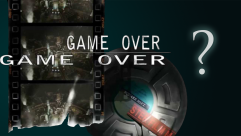

No comments yet
Log in or Register
No comments yet
Be the one to start the conversation!